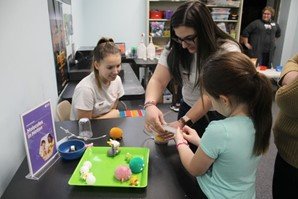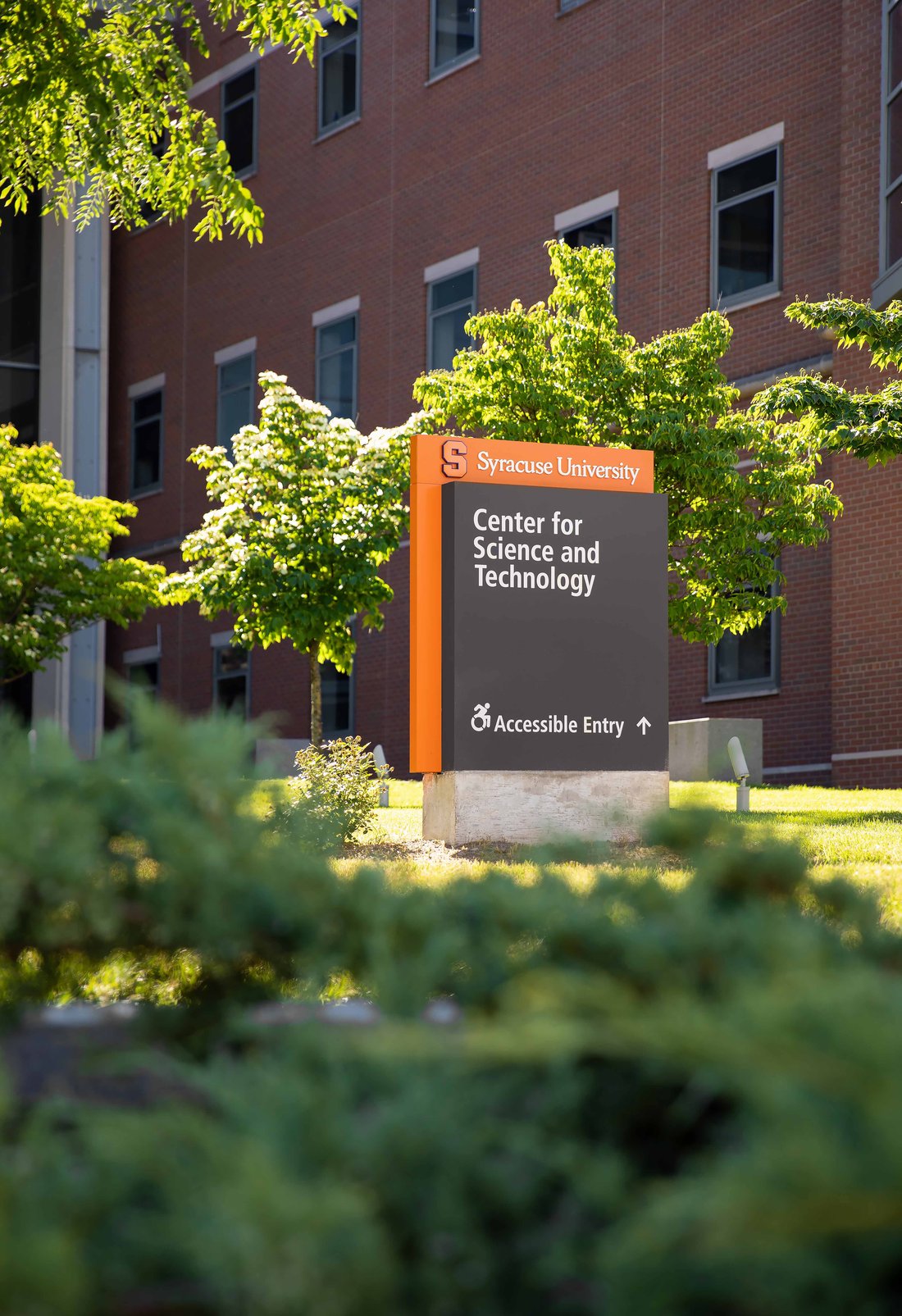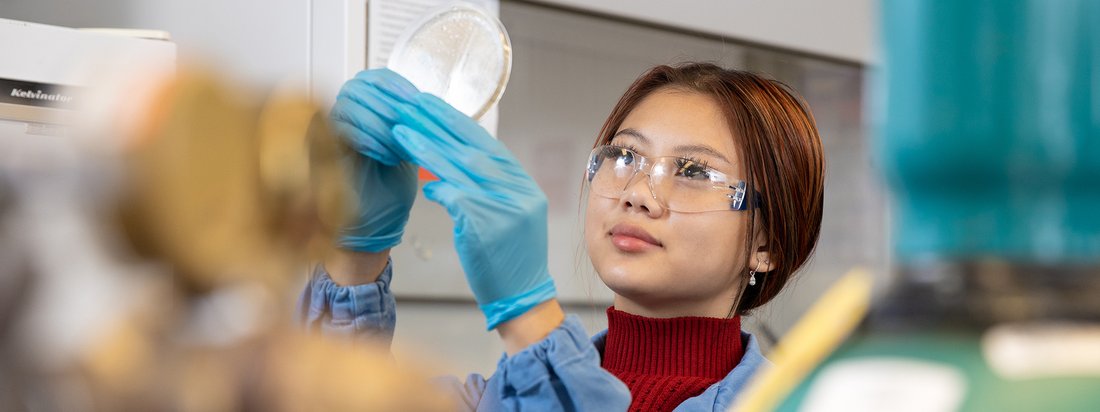
College of Arts and Sciences
Curriculum
Coursework for the B.S. in chemistry includes a focus on laboratory experience and research, and is designed to prepare students for advanced degrees in chemistry and other sciences and for careers in the health-related professions.
- Develop quantitative and qualitative problem solving skills in core disciplines of chemistry.
- Develop accurate and safe laboratory techniques, recognize hazards and wastes and disseminate results.
- Train on modern instrumentation, interpret results, analyze data.
- Communicate effectively, work in small groups and perform database literature reviews.
- Design experiments using ethical behavior.
- Understand the impact of chemistry on society.
The decision to pursue a B.A. or B.S. in chemistry depends mostly on the careers you’re considering. If you're considering a medical career, a B.S. degree is a good choice. There are two options: 1) B.S. in chemistry, an American Chemical Society-approved program, the most versatile degree for students looking to work in a range of industries or pursue graduate degrees; 2) B.S. in medicinal chemistry, ideal for students pursuing professional degrees or careers in biotech, government or medicine.
If you're considering double majoring or just want a more general education in chemistry, then the B.A. in chemistry is right for you. With fewer required courses, you’ll have more time to explore chemistry course offerings alongside courses in other academic areas. As a B.A. student, you'll choose between the chemistry or biological chemistry track options, depending on your interests.
- Organic Chemistry Laboratory
- Forensic Chemical Analysis
- Biology of Cancer
- Proteins and Nucleic Acids Laboratory
- Calculus I
Extracurricular Opportunities
American Chemical Society Student Chapter
The Syracuse University American Chemical Society Student Chapter helps foster relationships between chemistry majors, minors and faculty and promotes STEM education within our community. The chapter frequently volunteers at the Museum of Science and Technology, the Boys and Girls Club and more.

Center for Science and Technology
The Department of Chemistry is located in the Center for Science and Technology on the eastern edge of campus. Laboratories are equipped with state-of-the-art instrumentation, including an isothermal titration calorimeter, NMR and X-ray crystallography facilities and ultrafast laser laboratory.

Rebecca Lee Pre-Health Society
The Rebecca Lee Pre-Health Society—named after Rebecca Lee Crumpler, the first African American woman in the US to earn an MD—is a student organization that promotes and encourages a diverse group of pre-health students to attend professional health schools, including those for medicine, physician assistant, physical therapy, public health, pharmacy and other health careers. Students from all majors are welcome to join this organization.
Learn more about this program

